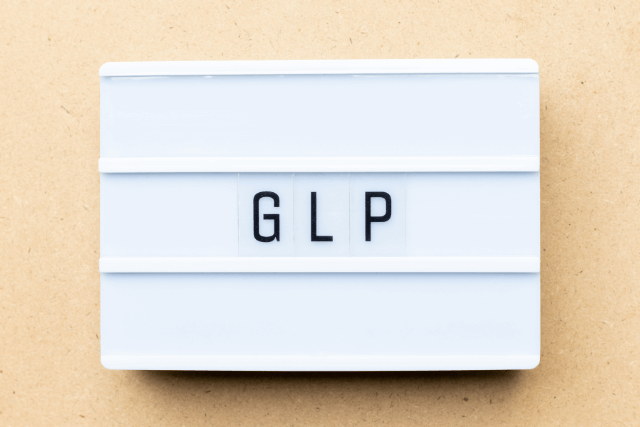High-protein diets have become widely popular in the weight loss community. People often turn to them to shed extra pounds, but are they truly effective? While high-protein diets are frequently praised, many still wonder how they actually help with weight loss. Is the hype real, or is there more to the story? In this blog, we’ll explore the science behind high-protein diets. We’ll also look at their benefits, potential risks, and how to make them work for you. Whether you’re considering a high-protein diet or have already started one, this blog will provide essential facts.
High-Protein Diets
High-protein diets have gained traction for their role in weight loss. These diets usually involve increasing your protein intake while reducing carbohydrates or fats. Protein is an essential nutrient that helps your body build and repair tissues. It also helps you feel fuller for longer. However, before jumping into a high-protein diet, it’s important to understand the full picture. Knowing the pros and cons can make your experience more successful.
Benefits of High-Protein Diets
1. How High-Protein Diets Support Weight Loss
People choose high-protein diets for many reasons, but weight loss is a major one. Protein has a unique ability to help with weight loss in multiple ways.
- Increased Satiety: Protein helps you feel full longer. When you eat more protein, you’re less likely to snack or overeat later. It’s an easy way to cut down on unnecessary calories.
- Thermic Effect of Food (TEF): Protein requires more energy to digest compared to fats and carbohydrates. In fact, around 20-30% of the calories from protein are burned just in the digestion process. This helps speed up metabolism and burns more calories.
- Preservation of Muscle Mass: During weight loss, your body can break down muscle for energy. A high-protein diet helps protect your muscles while you burn fat. This ensures the weight you lose comes mostly from fat, not muscle.
Together, these factors make high-protein diets a powerful tool for effective weight loss.
2. Protein and Fat Loss: What You Need to Know
Besides preserving muscle, high-protein diets help reduce body fat. When combined with exercise, especially strength training, these diets can target fat while preserving muscle. Protein also influences hormones that control fat storage and hunger, like ghrelin (the hunger hormone) and leptin (the satiety hormone).
Research shows that high-protein diets are especially effective at reducing belly fat. They help control insulin levels, which are linked to fat storage. By regulating blood sugar and preventing insulin spikes, protein aids in fat loss.
3. Best Protein-Rich Foods for a Weight Loss
When on a high-protein diet, it’s important to choose the right protein-rich foods. Here are some of the best options to include in your meals:
- Chicken and Turkey: Lean poultry provides high-quality protein with little fat. It’s versatile and can be used in many different dishes.
- Fish and Seafood: Fish like salmon, tuna, and shrimp are protein-rich and also provide healthy fats like omega-3s, which promote heart health.
- Eggs: Eggs are a great source of complete protein. They contain all nine essential amino acids, making them an excellent choice.
- Greek Yogurt: Greek yogurt is packed with protein and also contains probiotics, which are good for your digestive health.
- Legumes and Beans: For vegetarians or anyone looking to reduce meat intake, legumes, beans, and lentils are excellent plant-based protein sources.
By incorporating these protein-rich foods into your meals, you’ll ensure you’re meeting your protein needs while enjoying a variety of nutritious meals.
4. The Role of Protein in Metabolism
Protein plays a critical role in boosting metabolism. The thermic effect of food (TEF) means your body burns more calories digesting protein than it does digesting fats and carbohydrates. In addition, protein helps regulate metabolic hormones like insulin. Insulin plays a key role in how your body stores fat and processes energy.
Consuming more protein means your metabolism works harder, helping you burn more calories throughout the day. This is why high-protein diets are so effective at promoting fat loss, especially when combined with regular physical activity.
5. Are High-Protein Diets Safe for Everyone?
While high-protein diets are effective for weight loss, they may not be right for everyone. People with certain health conditions should approach high-protein diets with caution.
- Kidney Strain: For individuals with kidney issues, eating too much protein can strain the kidneys. Protein requires processing, which can be taxing for those with kidney conditions.
- Digestive Issues: Some people experience bloating, constipation, or discomfort when consuming large amounts of protein. Balancing protein with fiber is important to prevent digestive problems.
- Nutrient Imbalance: Focusing too much on protein can lead to an imbalance in your diet. It’s essential to also include fruits, vegetables, and healthy fats to ensure a balanced nutrient intake.
If you have pre-existing health conditions, such as kidney disease, or experience digestive discomfort, it’s wise to consult with a healthcare provider before adopting a high-protein diet.
6. How to Make a High-Protein Diet Sustainable
Making a high-protein diet sustainable requires planning. Over time, you may find it difficult to eat the same foods every day. To keep things exciting and sustainable, consider these tips:
Vary Your Protein Sources: Include a variety of protein sources in your diet, such as plant-based options like tofu, quinoa, and chickpeas. This variety will make your meals more interesting while providing different nutrients.
Meal Prep: Planning and prepping your meals in advance can help you stick to your diet. This ensures you always have high-protein options available when hunger strikes.
Combine Protein with Other Nutrients: Don’t forget to add healthy fats and fiber to your meals. A balanced diet will help you feel full and satisfied.
By planning your meals and mixing things up, you can make them both enjoyable and sustainable in the long run.
Conclusion
So, what’s the truth about high-protein diets for weight loss? They work. High-protein diets help with weight loss by boosting satiety, increasing metabolism, and preserving lean muscle mass. However, they may not be right for everyone, and it’s important to approach them with balance and caution.
Incorporating protein-rich foods into your meals and maintaining regular physical activity can make a significant difference in your weight loss journey. But remember, a high-protein diet should be part of a balanced lifestyle. Prioritize variety, exercise, and proper nutrition to make your weight loss efforts sustainable.
Ultimately, they are a powerful tool to support weight loss, but long-term success comes from making consistent, healthy choices. Be mindful of your unique needs, and enjoy the journey toward better health.



